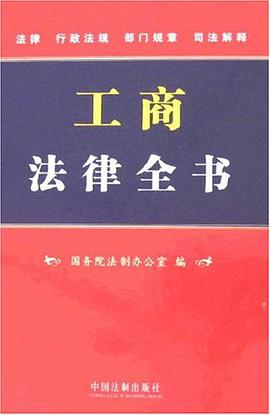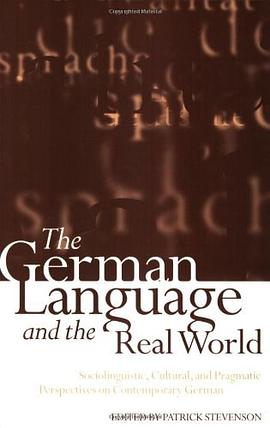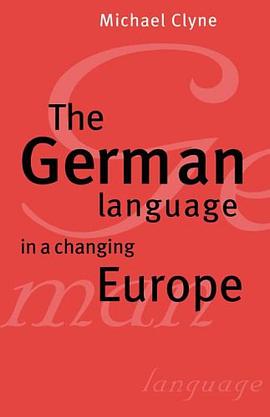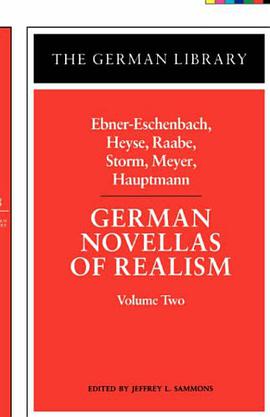

具体描述
This work advances and revises our understanding of both the history and the thought of the classical period of German philosophy. As he traces the structure and evolution of idealism as a doctrine, Frederick Beiser exposes a strong objective, or realist, strain running from Kant to Hegel and identifies the crucial role of the early romantics - H lderlin, Schlegel, and Novalis - as the founders of absolute idealism. Traditionally, German idealism is understood as a radical form of subjectivism that expands the powers of the self to encompass the entire world. But Beiser reveals a different - in fact, opposite - impulse: an attempt to limit the powers of the subject. Between Kant and Hegel he finds a movement away from cosmic subjectivity and toward greater realism and naturalism, with one form of idealism succeeding another as each proved an inadequate basis for explaining the reality of the external world and the place of the self in nature. Thus German idealism emerges here not as a radical development of the Cartesian tradition of philosophy, but as the first important break with that tradition.
作者简介
目录信息
读后感
评分
评分
评分
评分
用户评价
这本书的封面设计简直是一场视觉盛宴,那种厚重的纸张质感,搭配上烫金的字体,立刻让人感受到它内在蕴含的学术重量。我是在一家独立书店偶然瞥见它的,那一刻,我几乎是被它那种古典而又深邃的气质所吸引。内页的排版也做得非常考究,字体的选择和行距的把握,都体现出一种对阅读体验的极致尊重。拿到手里沉甸甸的感觉,让人不禁联想到那些跨越时空的思想碰撞。装帧的细节处理得一丝不苟,即便是书脊的粘贴工艺,也看得出出版社在选材和制作上的用心良苦。我很少看到一本哲学类的书籍能将形式美学做到如此高度,它不仅仅是一本书,更像是一件可以收藏的艺术品。每次翻阅,那种触感和视觉上的愉悦感,都为接下来的深度阅读铺设了一条平坦而又充满仪式感的道路。我尤其欣赏它在扉页部分采用的古典插画风格的装饰性元素,虽然内容上与主题可能没有直接关联,但它成功地营造了一种沉浸式的氛围,仿佛带领读者穿越回那个思想群星璀璨的时代。
评分这本书的语言风格极其精炼,简直可以用“剑走偏锋”来形容。作者的行文如同一位技艺高超的剑客,每一段话都直指核心,毫不拖泥带水,但其间的哲学术语和复杂的句式结构,对于初学者来说,无疑是一个巨大的挑战。我花了大量的时间去适应这种独特的叙事节奏和逻辑跳跃性,很多时候需要反复阅读同一句话,才能捕捉到其中蕴含的细微差别和微妙的语境转折。这种写作方式的好处是极大地提高了信息密度,使得有限的篇幅内塞满了极为丰富的论述,但缺点也很明显,那就是阅读过程中的流畅性大大降低,需要高度集中的精神力。我不得不承认,在某些章节,我需要查阅大量的背景资料和辅助读物,才能勉强跟上作者的思路,这更像是一场智力上的马拉松,而不是一次轻松的漫步。这种“硬核”的写作态度,显然是面向那些已经对该领域有一定基础的严肃学者的,对于普通读者来说,门槛设置得未免有些高了。
评分这本书在引用和注释方面做得极其详尽,可以说是学术规范的典范。几乎每一个关键的论点或概念的提出,都能在脚注中找到明确的原始出处,这对于希望追溯思想源流的研究者来说,提供了无可替代的便利。我尤其注意到,作者在注释中不仅仅是简单地标明了页码和文献名称,更有不少地方,他会用几行精炼的文字对原始文本的特定语境进行简短的评论或澄清,这无疑是超越了一般注释规范的“增值服务”。这使得读者在核对原始材料时,能够获得更多维度的理解。这种对文献细致入微的处理态度,极大地增强了本书的可信度和权威性。它向读者传达出一个明确的信息:作者对自己的每一个论断都持有高度的负责态度,并且欢迎同行和读者的严格审视。这种透明度和严谨性,是衡量一部优秀学术著作的重要标尺。
评分这本书的论述视角无疑是极具启发性的,它成功地打破了我长期以来对某些既定观念的僵化理解。作者并没有满足于仅仅复述经典文本的观点,而是以一种近乎于批判者的姿态,不断地对既有的解释框架提出挑战。我印象最深的是他对于“主体性”概念的重新界定时所采用的独特切入点,他引入了一些跨学科的视角,比如当时社会结构变动的某些侧面,来反观纯粹的内在精神发展,这种“内外结合”的分析方法,让我看到了理解这一核心概念的全新可能性。这种方法论上的创新,使得原本可能显得枯燥的纯粹思辨,充满了鲜活的生命力和现实关照。它促使我不仅仅是“理解”作者在说什么,更重要的是去“思考”作者是如何得出这个结论的,以及这个结论在当代语境下有何种价值。这才是真正伟大的学术著作应当具备的特质——它不仅提供答案,更重要的是它激发了读者提出更多、更深刻的问题。
评分从内容组织和章节安排来看,这本书展现出一种近乎于数学般的严密结构。作者似乎遵循着一套自己构建的内在逻辑体系,章节之间的推进不是线性的简单叠加,而更像是一种螺旋上升的论证过程,每深入一层,都会以前面奠定的基础为参照,进行更深层次的解构与重构。我特别欣赏它在处理不同思想家之间的相互关联和异同时的那种细腻处理。他并没有简单地将A与B对立起来,而是巧妙地挖掘出他们理论体系中那些不易察觉的内在张力与潜在的共鸣点。这种结构化的呈现方式,极大地帮助读者构建起一个宏大的、相互联系的思想地图,避免了将这些复杂的学说碎片化理解的弊端。每一次阅读的深入,都像是打开了一扇新的侧门,发现了一个之前被忽略的连接点,这种精密的布局,体现了作者深厚的学术功底和极强的系统规划能力。
评分 评分 评分 评分 评分相关图书
本站所有内容均为互联网搜索引擎提供的公开搜索信息,本站不存储任何数据与内容,任何内容与数据均与本站无关,如有需要请联系相关搜索引擎包括但不限于百度,google,bing,sogou 等
© 2026 book.wenda123.org All Rights Reserved. 图书目录大全 版权所有




















